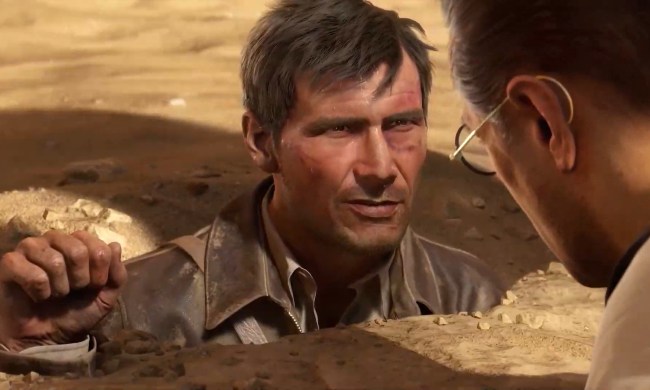When I was a kid, I was a soldier for Nintendo. I was fiercely loyal to the Nintendo GameCube, so much so that I was visibly angry when my parents pranked me on Christmas by pretending they were giving me an Xbox instead. It was a criminal offense in the heat of the console wars.
“Console war” is a term widely used to describe competition between game console manufacturers. It became a household phrase when the Super Nintendo and Sega Genesis went to war for TV supremacy. Sega famously ran ads taking direct shots at Nintendo, saying “Genesis does what Nintendon’t.” That heated competition was present through multiple console generations and especially heated up when it became a three-way race among Microsoft, Sony, and Nintendo.
Today, most level-headed gamers would tell you that the console wars largely ended by the 2010s. Nintendo broke off into its own niche, while Sony and Microsoft started learning how to play nice via cross-platform support. Even with ardent loyalists hanging out in their Twitter foxholes, the world had learned that multiple consoles could peacefully coexist.
That changed this week. Microsoft’s announcement that it plans to acquire Activision Blizzard is the shot heard ’round the world. It’s an aggressive move that signals Console World War II is imminent — and this time, the stakes are much higher.
The first battle
The first iteration of the “console wars” was tame by today’s standards. For the most part, it heavily revolved around exclusive games. Consoles were defined by how good their first-party libraries were, which gave fans a quantitative metric to measure a system’s success. When a console landed a third-party exclusive, it was lauded as an existential win, showing how strong one company’s pull was.
Despite feeling intense at the time, much of it was good natured. Companies would take jabs at one another in ads, fanboys would argue on message boards, and magazines would make retroactively hysterical claims like, “Mario, Sonic … prepare for war. Blinx is here!”
If you want to know who was behind the death of a certain famous plumber today… Well, let's just say the "Big M" wasn't prepared… pic.twitter.com/xc38kopiu0
— Barely Frequent Blinx Facts (@barelyblinx) March 31, 2021
The console wars began to die down when Nintendo launched the Wii. The motion-controlled system was an admission that Nintendo no longer saw itself as being in competition with Microsoft and Sony. It was offering completely different experiences, and that helped the public accept the idea that a Wii and Xbox 360 could live under one roof.
Sony retained an isolationist mindset through much of the 2010s, refusing to give in to cross-platform play. It would eventually cave after increased pressure from players, breaking down the last barrier. With Microsoft focusing on selling Game Pass as a service and Sony doubling down on cinematic exclusives, both companies were taking different enough approaches that they weren’t really at odds with one another.
That ceasefire pulled us into a false sense of security. Now a whole new generation of gamers are about to relive history.
War never changes
In 2020, it became clear that the skies were darkening once again. When Microsoft announced its intentions to acquire Bethesda, gamers were stunned. Buying IPs like Doom, Wolfenstein, and The Elder Scrolls felt like an uncharacteristically aggressive move in the modern era. Microsoft tried to downplay worries that it would lead to exclusivity, before backtracking entirely and confirming Xbox would become the exclusive home for Bethesda games.
That news set off a small arms race. Sony locked down a few studios of its own, though nothing on Bethesda’s scale. Instead, Sony merely formalized its relationships with studios it had a strong working relationship with already. If Microsoft was going to take Bethesda games off PlayStation, the least it could do was fortify its first-party stronghold.
But the Activision Blizzard news is a cannonball straight through Sony’s fortress. With Call of Duty, Overwatch, and even PlayStation icon Crash Bandicoot now potentially exclusive to Xbox, it’s clear that Microsoft means war. Adding value to Xbox Game Pass by landing high-profile games is one thing; taking those games away from its competitors to do so is a whole different beast.
It’s the kind of move that can only lead to retaliation. Sony will be forced to preemptively snatch up some publishers to avoid further damage. Meanwhile, it gives fanboys on both sides plenty of kerosene. Xbox supporters will use the news to tease PlayStation owners about how “Xbox has the better games” while PlayStation fans will take the moral high ground by slamming Microsoft’s impending monopoly. It’s going to get ugly.
What’s upsetting about the potential return to the console wars is that it’s a lot less harmless this time. Back in the ’90s, we were arguing over which cartoon mascot was better than Mario. Today, we’re watching gigantic corporations vacuum up companies in a way that risks industry monopolization. Imagine if every major publisher, from EA to Sega, was owned by one of two companies. It’s a government intervention in the making.
None of this should be celebrated, but console tribalism will cause blind fans to excuse it. Once we start rooting for corporate consolidation like we’d cheer for the New England Patriots, gaming fandom will have truly lost any soul it had left.
If we really are entering a new era of console wars, the best side to take isn’t with Sony or Microsoft. Anyone who loves video games and wants to see the industry grow should be critical of practices like this, regardless of what console they own. When corporations pit us against one another, it only takes our eyes off the real battles worth fighting.



